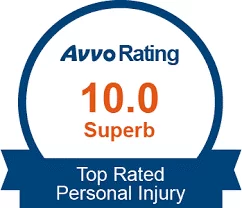If you’ve recently filed an insurance claim, say after a car accident, or even being at the receiving end of a medical malpractice situation, your insurer sets you up with a Claims Adjuster. A insurance claim adjusters, as the name goes, is responsible to study your demand letter, meet you and understand the merits of your claim, study the supporting documents, prepare his own reports and finally decide on the right amount of settlement money you receive.
Unfortunately, the actual process isn’t as straightforward as it sounds. Claim adjusters are technically employees of your insurer, meaning their goal is to offer a deal that works in favor of the corporation and not you. However, to ease your anxiety about dealing with a claims adjuster, we have we have some easy tips that you can keep in mind.
1. Do all your preparation, background study and get your documents in place
A big part of the adjuster’s job is to study all relevant information. So, take time out to get all the paperwork, the police reports, etc. in place. Make sure you spend some time going over the facts of the incident and can answer any question the adjuster may have for you.
2. Be calm and use your words carefully
It is understandable that after a major accident, you are bound to be angry and sad at the same time. While it’s natural to want to vent that anger at the person sitting across, control the urge and remain calm during your conversation with the adjuster. For one, raising your voice will neither speed up the process nor increase the value of your settlement.
More importantly, if by any chance during your outburst you mention something that isn’t factual but works to the advantage of the insurance company, be guaranteed it will be used against you. On the other hand, being cordial with the adjuster will help him see the facts of the case and offer a truly unbiased deal.
3. Have an initial settlement amount in mind
When you complete the initial damage assessment, or file the paperwork, use your judgements to evaluate a settlement amount. Think of the material as well as other damages that you feel you should be compensated for and come up with you think an ideal settlement should look like.
Use this as a bottom line in all your conversations with the adjuster (without revealing the number, obviously). This exercise will also help you temper your expectations of the outcome of your conversation.
4. Don’t jump at the first offer
The insurance claim adjusters that established insurance companies hire are trained negotiators. They do this for a living and understand the psyche of people they interact with.
Sometimes, just to test the validity of your claim, they may offer a decent settlement amount, without confirming the specifics of this deal. This is their way of testing your authenticity.
At times, it may also just be a reasonable but low amount. Don’t jump at the first amount they mention, because you want to avoid a dragged-out process. Discuss their offer and understand the calculations behind them, as it also shows them that you are serious about your claim and can’t be deceived into a less than ideal deal.
5. Be present for the physical inspection
While this sounds obvious, we cannot stress enough on the importance of being present when the adjuster comes to examine your vehicle, to evaluate your claim. Answer all the questions in an agreeable and truthful manner and use the opportunity to present a rational reason why you deserve a significant settlement. An important action point is to ask for a copy of the report to maintain at your end. If they don’t provide one right away, follow up religiously and get your hands on one sooner than later.
6. Emphasize on the emotional costs
At the end of the all this, your loss isn’t just about the damages to the car. You or your loved one has been through a physically, mentally and emotionally challenging incident and deserve to be compensated for it.
Convey that through your conversations with the adjuster, as opposed to repeating the facts of the case. Make them understand your story and see how their decision can make or break not just your healing process, but your course of your life ahead.
7. Take notes
While the adjuster takes their notes through the entire process, make sure you record your conversations and observations during the entire process. You never know which piece of evidence, photograph or detail may come handy, if things go south in the process.
This may seem a lot to manage, especially while you recover from your harrowing experience. Ask for assistance from a family member, a friend, or a trusted advisor, on options you might want to explore if you are unable to reach a settlement with the adjuster.
Contact a Skilled Attorney for Help Today
If all of this still feels like a lot to go through alone, you need a skilled negotiator who deals with such cases day in and day out. Riah Greathouse has been managing personal injury cases in and around Greater Atlanta for over a decade and can help you level the field and get the settlement you deserve. Reach out for a free consultation at (678) 310-2827.


